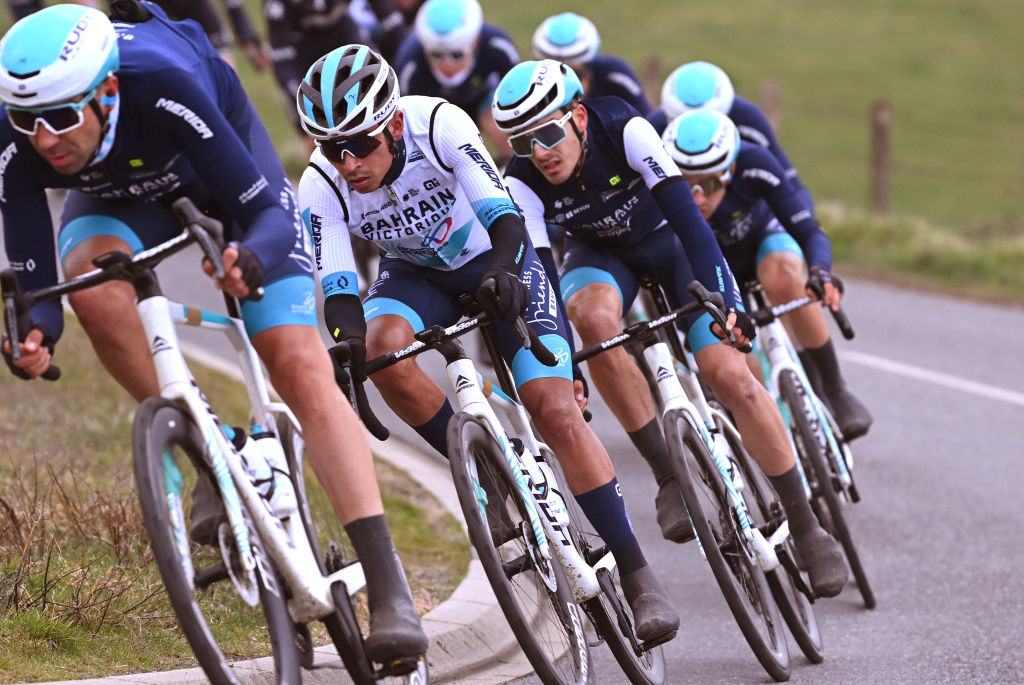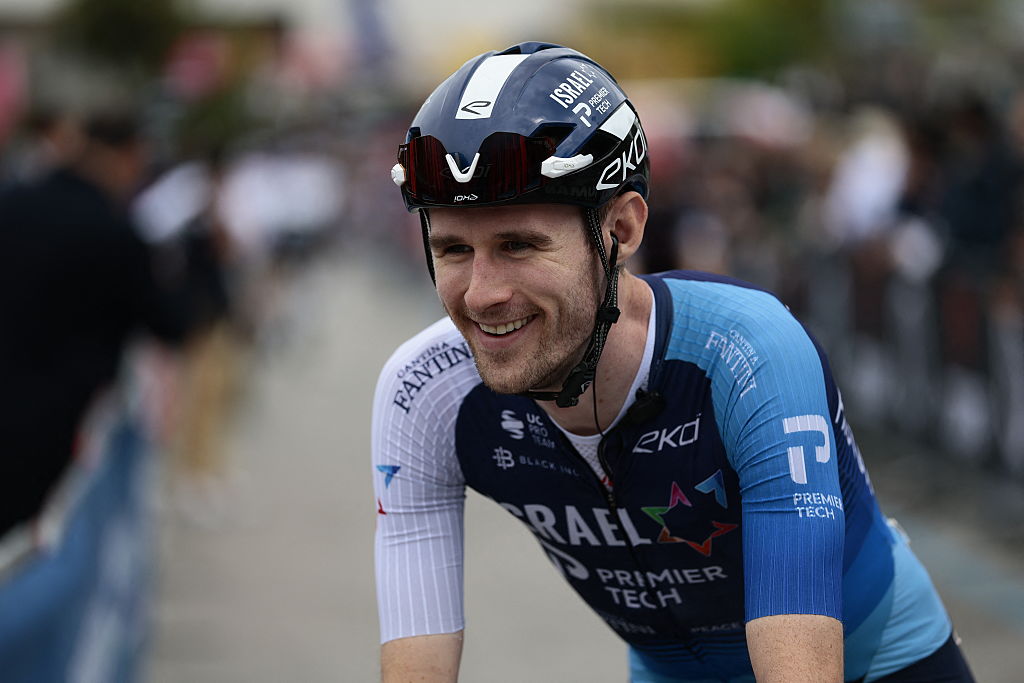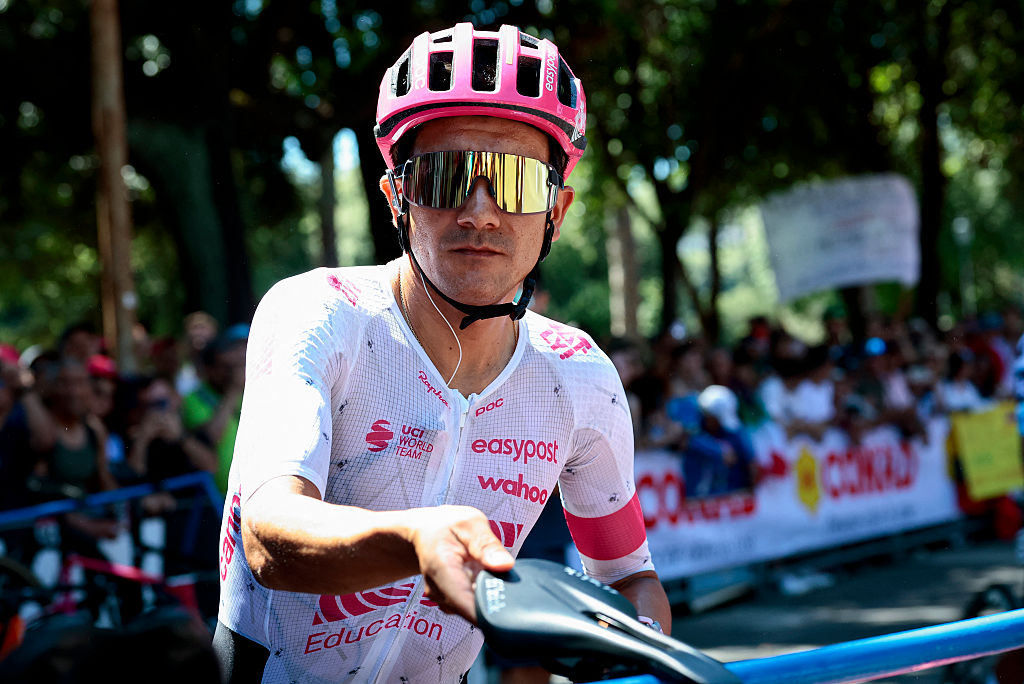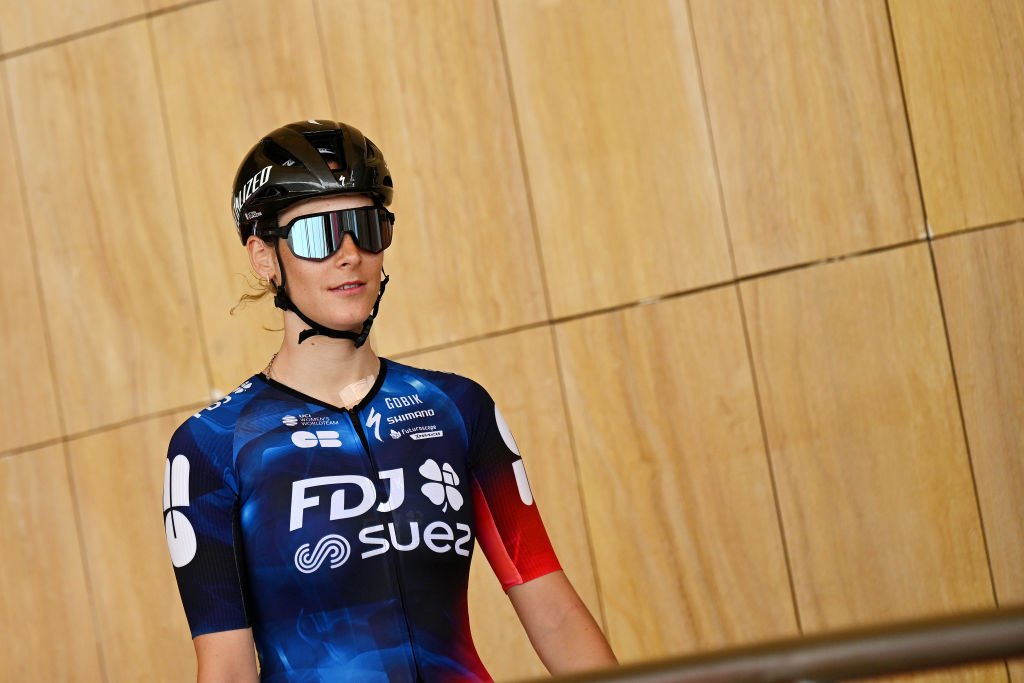Vuelta a Espana Preview: Chris Froome and unfinished business
Vuelta countdown: -5 days until final Grand Tour of 2017
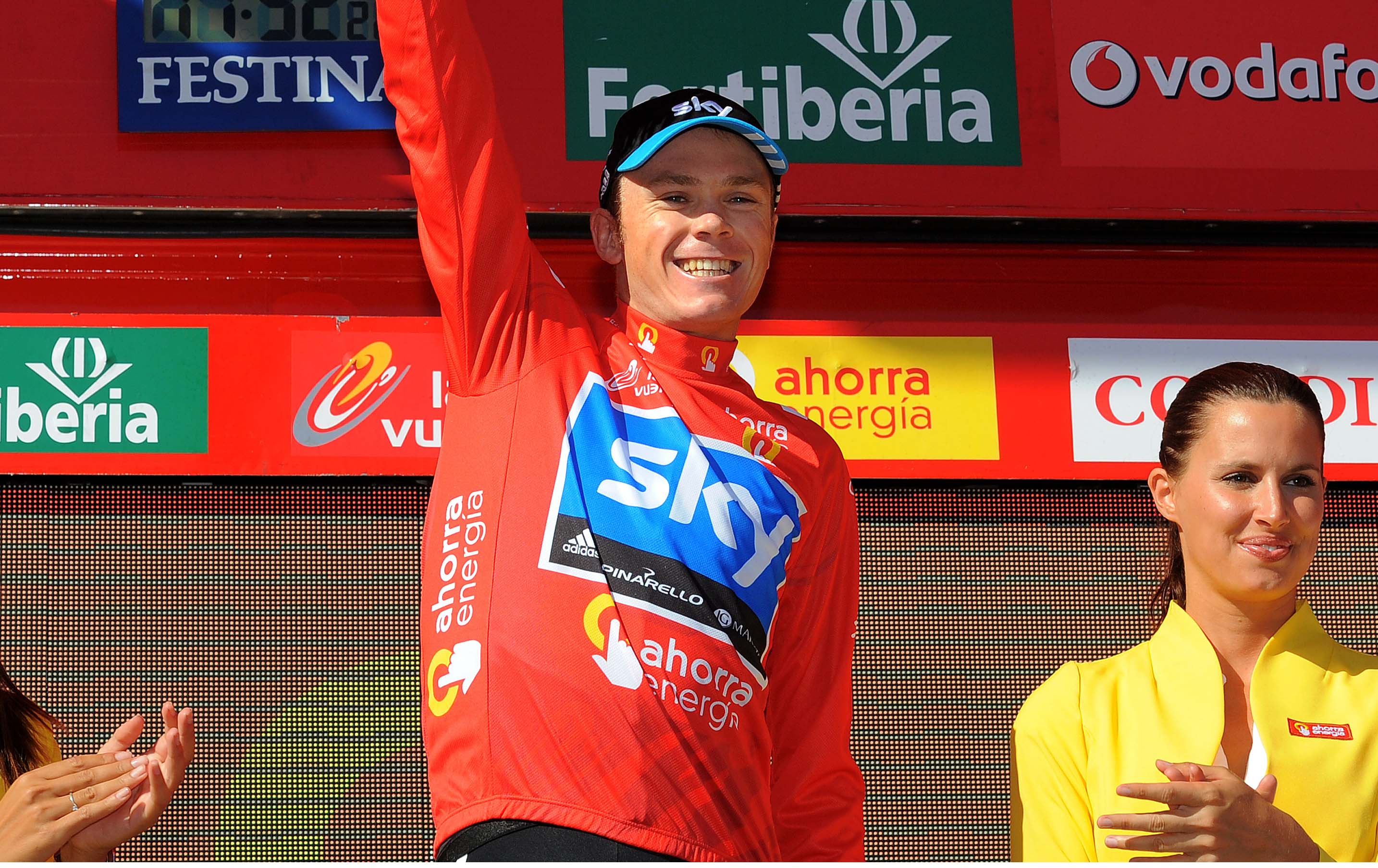
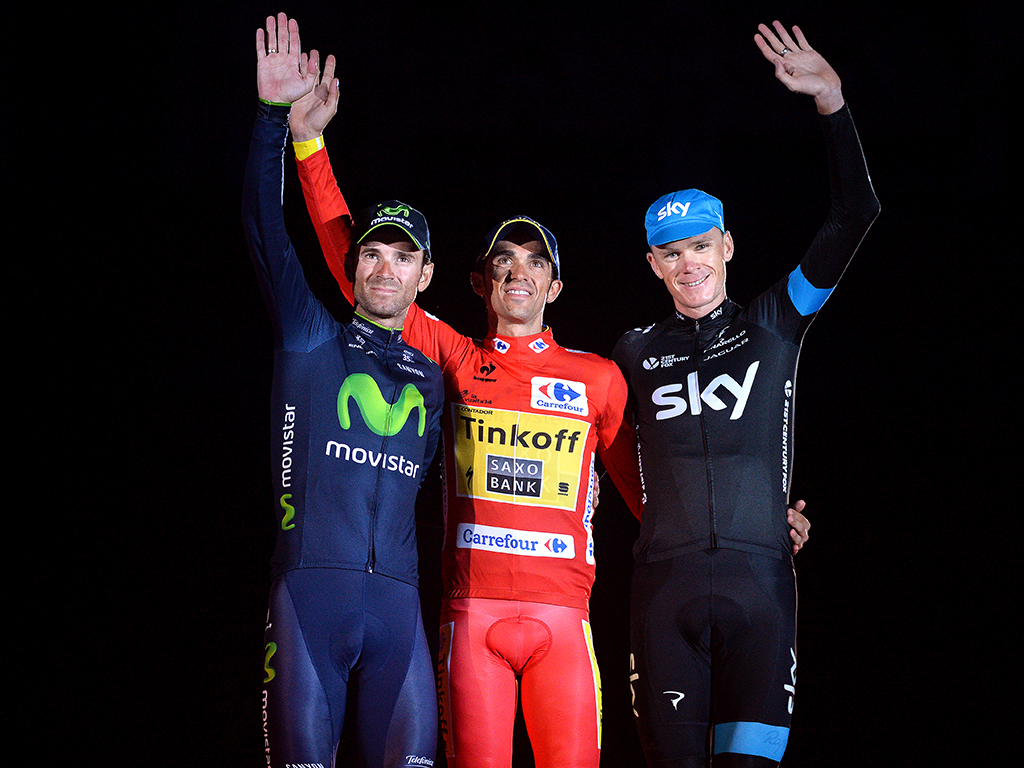
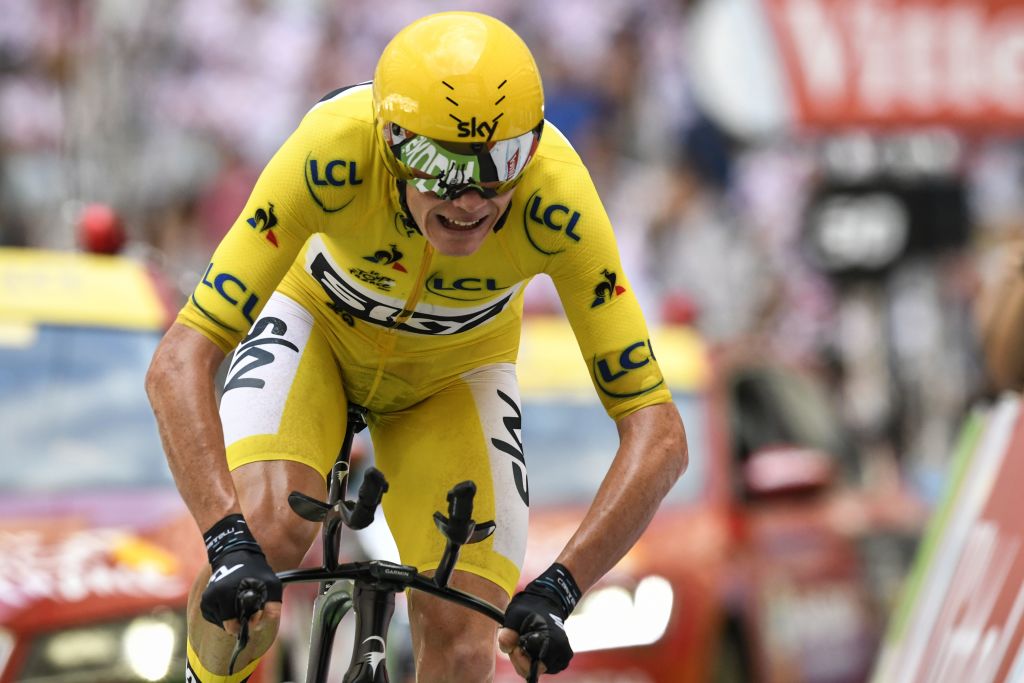
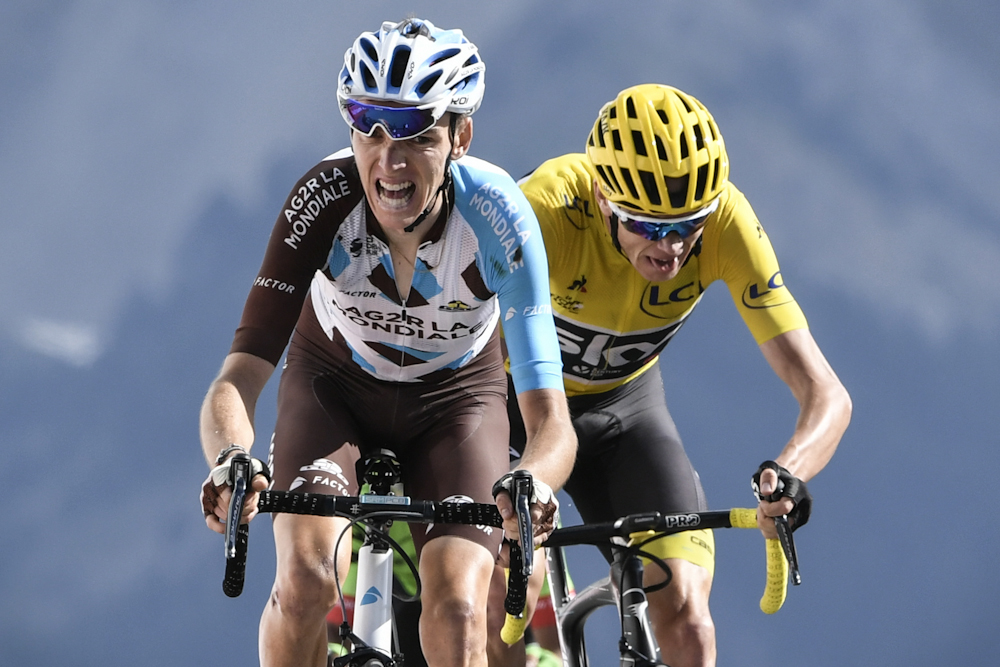
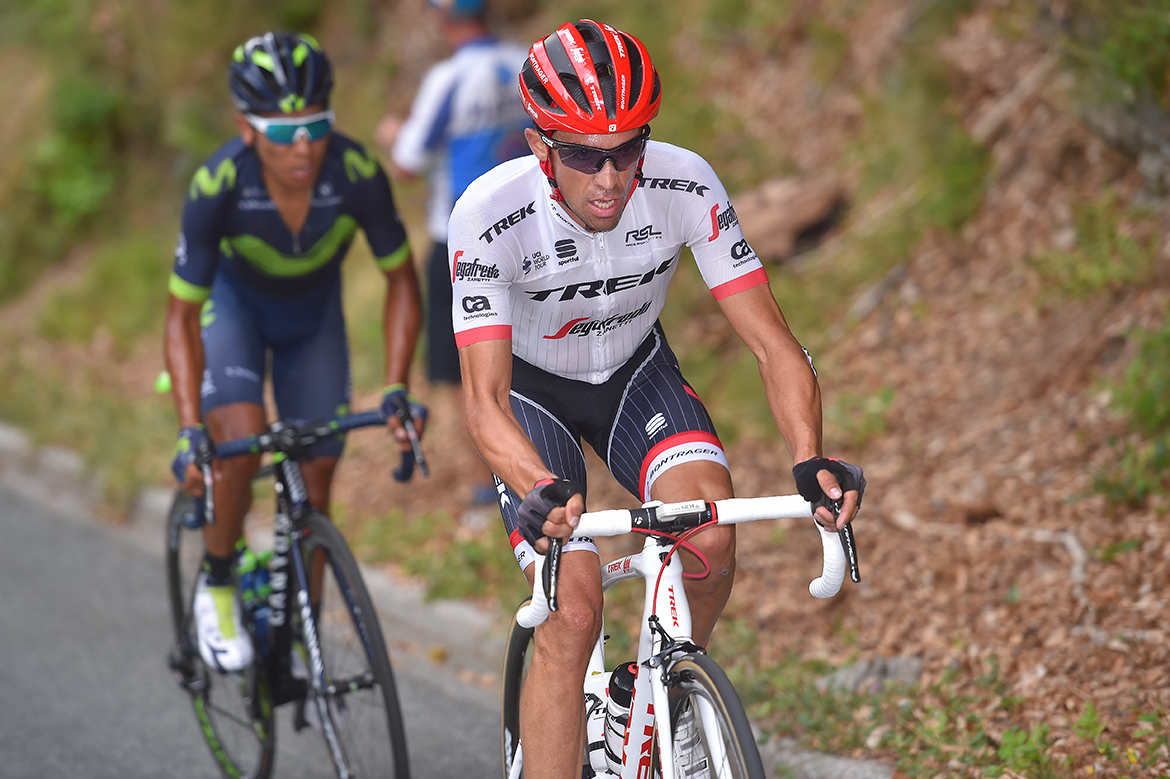
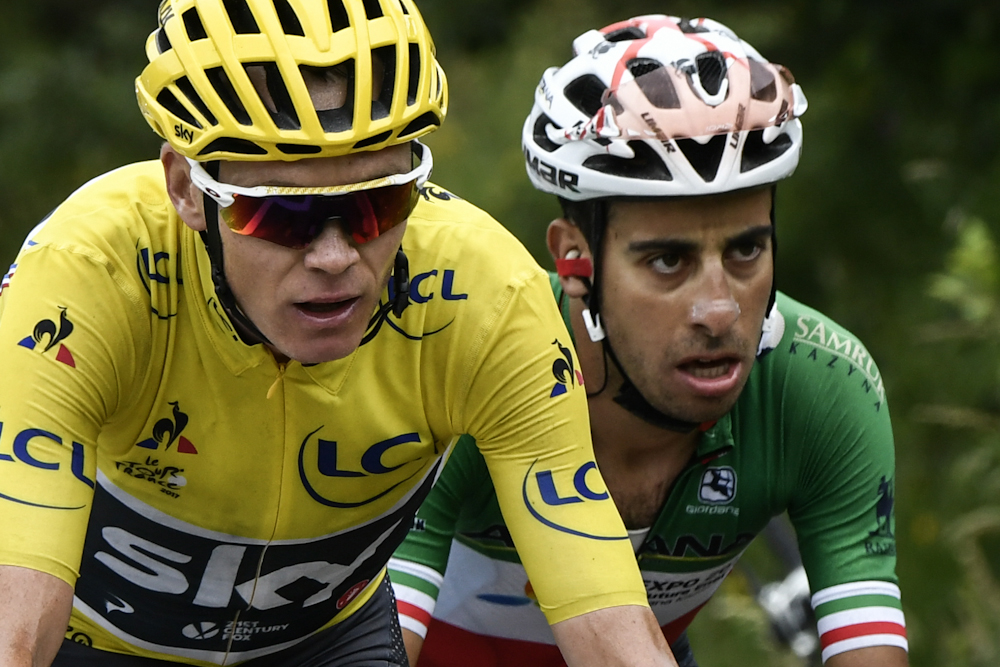
When Chris Froome (Team Sky) eventually retires, the Vuelta a España will take the unofficial prize for the most enduring piece of unfinished sporting business the multiple Tour de France winner had to handle. Froome has won the Tour de France four times and finished second at the Vuelta three times. On Saturday Froome hopes to change all that by finally winning Spain's Grand Tour.
Froome going to Vuelta a Espana 'with a sense of mission'
Froome, Nibali, Aru, Bardet, Contador headline Vuelta a Espana provisional start list
Contador to wear number 1 at final Vuelta a Espana
Tackling Tour and Vuelta a new departure for Aru
Vincenzo Nibali hitting form ahead of Vuelta a Espana
Vuelta a Espana: Vincenzo Nibali backed by youth and experience
Chaves and Yates brothers headline Orica-Scott team at Vuelta a Espana
Vuelta a Espana: Poels, Rosa and Nieve to back Chris Froome
Froome: The Vuelta is a race I love but it's relentless
Quick-Step's Schachmann calls end to 2017 season - News shorts
Caja Rural the 'perfect' team for Schultz's Vuelta a Espana debut
Froome says he feels a great deal of affection for the Vuelta and it certainly figures large in his racing history, all the way back to one sunlit September afternoon in 2011, when he walked onto the winner's podium of the Vuelta in Salamanca, looking distinctly shellshocked as the realisation sank in that for the first time ever, he was leading a Grand Tour.
That Vuelta, six years ago, was probably the first time he could have won the race but Froome was forced to take a back seat behind Bradley Wiggins in order to respect team hierarchy. And since then, despite all his success in France, and some spectacular stage victories in la Vuelta, outright victory in Spain still eludes the Team Sky rider.
That's not for want of trying: second overall in 2011, fourth in 2012, second in 2014 and second again in 2016 is not just a British record for Spain's Grand Tour, it's also one indication of how hard Froome has pushed to win the Vuelta. Another indication came in the Andorra stage of the 2015 Vuelta, where Froome crashed early on and fractured an ankle bone. Less tenaciously minded spirits would have abandoned but Froome still rode to the finish of what was rated, in terms of vertical climbing, the hardest Grand Tour stage in history. Such was his determination to try and stay in the race, although his injuries saw him register a DNS the next day.
Last year provided Froome with yet more of a sense of falling at the final post. Team Sky's collective collapse courtesy of an Alberto Contador-inspired mass ambush on the road to Formigal was one of the most surprising (and embarrassing, from a strategic point of view) defeats in the British team's history. Although Froome closed the gap on race leader Nairo Quintana with a stunning stage win in the final time trial in Benidorm in the third week, after Formigal, the Colombian was far enough ahead and strong enough in the mountains to guarantee overall victory.
Froome also has a sporting score to settle with the Angliru, this year the final summit finish of the Vuelta and in 2011 the climb where he had to wait with Wiggins as eventual overall winner Juan Jose Cobo blasted away. By the time he could counter-attack behind 'the Bison of La Pesa', as Cobo was nicknamed, Froome's chances of regaining enough time had disappeared.
As if his personal history with the Vuelta was not enough to explain why Froome will be hyper-motivated to do his best when he stands on the start line in Nimes this coming Saturday, there are historic angles galore to spur him on, too. No Briton has ever won the Vuelta a España, let alone two Grand Tours in one season and nobody has won the Vuelta and the Tour since Bernard Hinault 39 years ago. On top of that, Froome would - if he wins - be the first rider ever to capture both Grand Tours since the Vuelta switched dates from April to September, back in 1995.
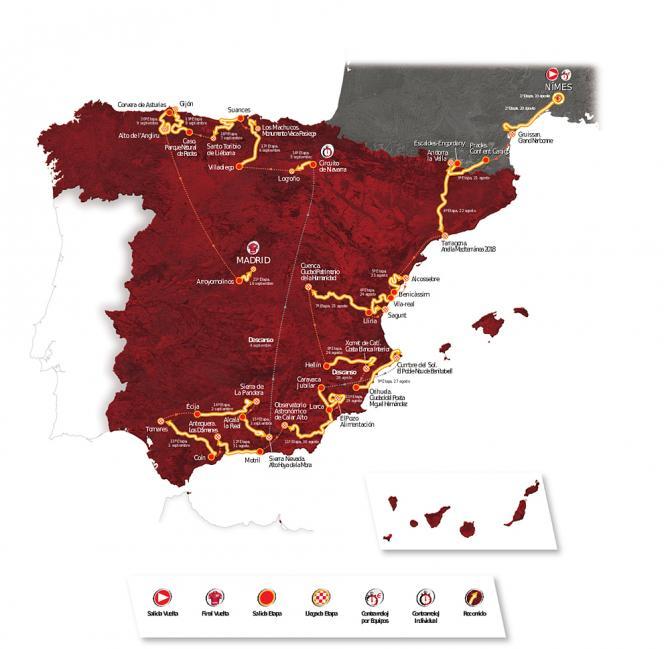
Froome's deliberately timing his rise to top form in the season to peak a little later, so he could be more certain of his condition in the Vuelta, is another sign of how keen he is to win. And for the first real insight into who else in the star-studded line-up is truly motivated and in form in the battle for overall victory in the 2017 Vuelta a España, we won't have to wait long: stage three's incursion into Andorra will be a first key test.
What is effectively a viciously early climbing wake up call for the peloton in the race's one incursion into the Pyrenees this year will also help us see, as the time-honoured cliche has it, who is going to lose la Vuelta, even if who will win it won't become clear quite so quickly.
Indeed, for the week after that, the 2017 Vuelta will likely drift into something a phoney war, with a multitude of short, steep summit finishes and hilly stages excellent terrain for skirmishing and point-scoring, but unlikely to see any of the GC riders sink or swim definitively.
It's only when Vuelta hits the steady first category grinds of Collado Bermejo on stage 10 and Calar Alto on stage 11, and above all, an ultra-difficult, re-formatted, ascent to Sierra Nevada on stage 14, that the GC will finally, begin to be squeezed into some sort of definitive shape and the time gaps will start to stretch from seconds into minutes..
Possibly the most important single day's racing of all the Vuelta, though, will arguably be the 40.2 kilometre individual time trial on stage 16 in the northeasterly city of Logroño. Flat and exposed, it's here that Froome, as a leading Grand Tour time triallist, will have his most clear-cut chance to put his rivals to the sword, prior to the Vuelta's rather more unpredictable last mountain showdown on the Angliru.
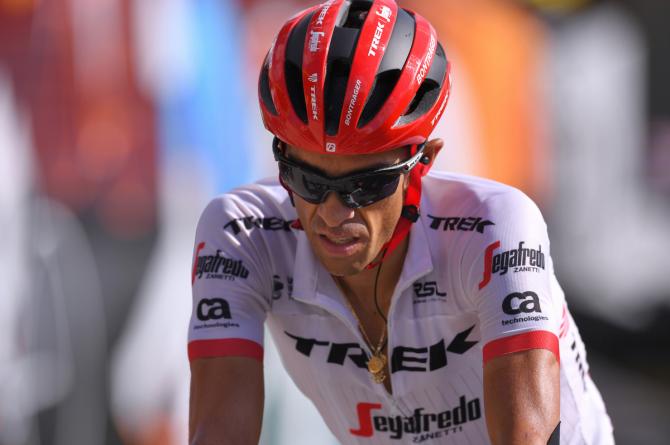
The field of rivals that Froome faces is easily as strong as last season, with the crucial difference that Movistar, Spain's number one team, will be lacking both last year's winner Nairo Quintana and - for the first time in la Vuelta since 2011 - Alejandro Valverde. Yet the vacuum of power that major double absence theoretically creates has a huge number of potential contenders to fill it, far more than even in the star-studded edition of 2016.
Top of the list in terms of his track record in the Vuelta to do that is the three-times winner Alberto Contador (Trek-Segafredo). However, even if we overlook the other contenders. Contador has several other obstacles towards taking a fourth Vuelta, starting with his uneven track record in recent Grand Tours (including la Vuelta). Then there's the lack of a strong GC team in Trek-Segafredo's Vuelta line-up, the immense pressure to perform in his final Grand Tour, and, let's not forget, a trio of steep, short uphill finishes in the first week, where Contador is never at his strongest. On the plus side for El Pistolero, he rode a surprisingly good final time trial in the Tour de France, which bodes well for Logroño's chrono. Possibly equally importantly, the Vuelta's much shorter opening team time trial in comparison with 2016 - less than half the length - also means Contador will (probably) not start the race a minute down on his rivals, as happened last September.
Yet more factors make Contador one of the most complex contenders in this year's Vuelta to estimate. Over the years we've seen his rare knack of being able win Grand Tours when he's physically not the strongest, and last but not least, he'll also have motivation of racing on home terrain as Spain's number one contender for this year's Vuelta, and finishing his career in Madrid, a stone's throw from his home town of Pinto. But above all, there's the fact that at this point in his career, Contador has nothing to lose - and cycling's number one risk-taker in stage races can push the boat out a little further.
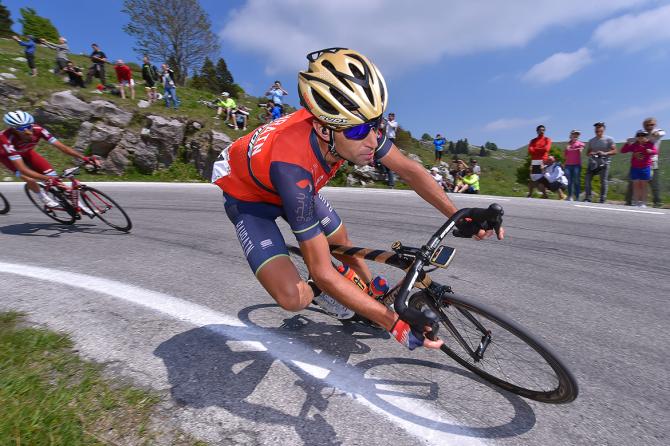
Yet this year's Vuelta is far from being one last Contador-Froome duel: it's indicative of the field's strength in depth that of the 2016 Vuelta top ten on GC, all bar one - Quintana - will be back on the start line in Nimes on August 19th. Apart from Contador, there are two other former Vuelta winners, too, starting with 2010 champion Vincenzo Nibali (Bahrain-Merida), who also has a score to settle on the Angliru after he lost the 2013 race there to Chris Horner. For Fabio Aru (Astana) la Vuelta is his second Grand Tour this year, but his fifth place in July, not to mention memories of his 2015 victory in Spain, could boost his somewhat fragile morale.
Important new additions to the Vuelta GC battlefield include Adam Yates, reinforcing what is already an exceptionally strong Orica-Scott squad with 2016 Vuelta podium finisher Esteban Chaves and Adam's brother Simon, as well as double Tour podium finisher Romain Bardet (AG2R-La Mondiale).
Bardet says he wants "to figure prominently in the stages that play to my strengths," which probably means he's setting a very low bar in terms of the GC, given the Logroño time trial. But he, and we, could be proved wrong.
Apart from Orica-Scott, other Vuelta teams with multiple GC options include Astana, who have Miguel Angel Lopez as a plan B for Aru, and BMC, which contains both Rohan Dennis and Tejay van Garderen, as well as veteran Samuel Sanchez. Team Sunweb's combination of Warren Barguil and Wilco Kelderman, LottoNL-Jumbo duo Steven Kruijswijk and George Bennett and last but not least, Italian Davide Formolo with Andrew Talansky (Cannondale-Drapac) both top ten finishers in the Vuelta last year, could all provide some major surprises.
The series of GC outsiders does not end there, with Rafal Majka (Bora-Hansgrohe), third in the 2015 Vuelta, Ilnur Zakarin (Katusha-Alpecin), Louis Meintjes (UAE Team Emirates), young Catalan racer Marc Soler (Movistar) and former Vuelta leader David De La Cruz (Quick-Step Floors) all keen to make an impact.
Yet the spotlight, at least initially, will centre on Froome, as the dominating force in modern-day Grand Tours and, given his track record, the overwhelming pre-race favourite.
There will be no long build-up to seeing what the Team Sky rider can achieve: within three days of racing - or perhaps earlier if echelons start to form on the long, exposed trek through coastland France on Sunday - Froome and the rest of the Vuelta GC field will quickly find themselves fighting for every second and the race leader's red jersey.
To subscribe to the Cyclingnews video channel, click here.
The latest race content, interviews, features, reviews and expert buying guides, direct to your inbox!
Alasdair Fotheringham has been reporting on cycling since 1991. He has covered every Tour de France since 1992 bar one, as well as numerous other bike races of all shapes and sizes, ranging from the Olympic Games in 2008 to the now sadly defunct Subida a Urkiola hill climb in Spain. As well as working for Cyclingnews, he has also written for The Independent, The Guardian, ProCycling, The Express and Reuters.
Latest on Cyclingnews
-
Bahrain Victorious leader Santiago Buitrago to ‘try to get in the top 5, or even on the podium’ at the Tour de France
Team will also count on French climber Lenny Martinez and sprinter Phil Bauhaus -
Canadian Road National Championships: Derek Gee solos to first road race title
Hugo Houle second and Michael Leonard third in St. Georges -
Richard Carapaz out of Tour de France due to gastrointestinal infection
Illness developed while training at home in Ecuador -
‘A little pain in my arm and pelvis’ - Vittoria Guazzini following her violent crash into wall at Italian road race championships
ITT champion Guazzini reports ‘pain in arm and pelvis’

